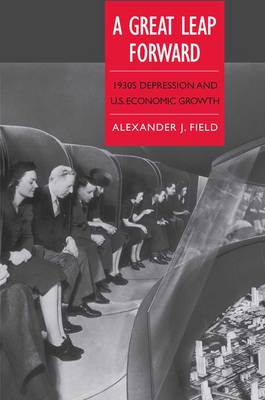Yale Series in Economic and Financial History
1 total work
This thoughtful re-examination of the history of U.S. economic growth is built around a novel claim, that potential output grew dramatically across the Depression years (1929-1941) and that this advance provided the foundation for the economic and military success of the United States during the Second World War as well as for the Golden Age (1948-1973) that followed. Alexander Field takes a fresh look at growth data and concludes that, behind a backdrop of double-digit unemployment, the 1930s actually experienced very high rates of technological and organizational innovation, fueled by the maturing of a privately funded research and development system and the government funded build-out of the country's surface road infrastructure. This substantive new volume in the "Yale Series in Economic History" invites renewed discussions on productivity growth over the last century and a half and on our current prospects.
